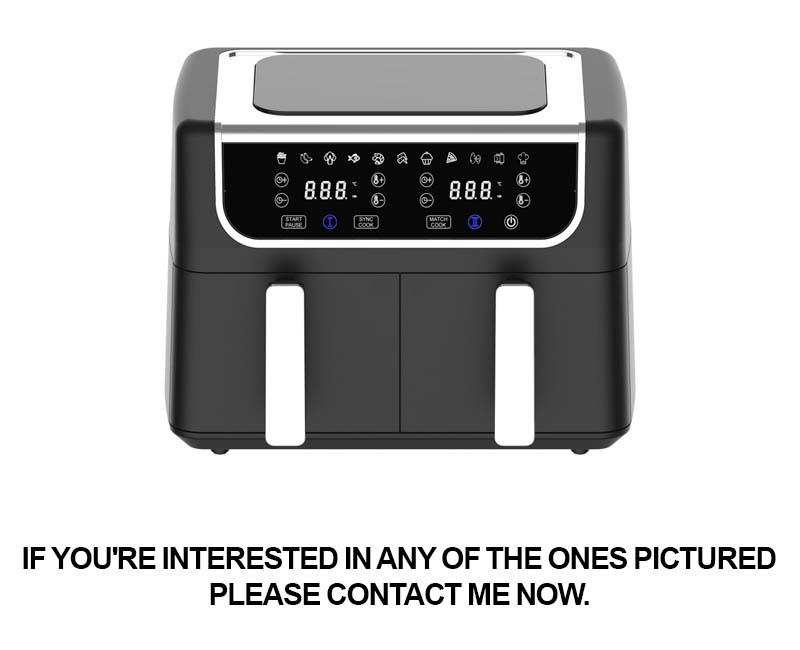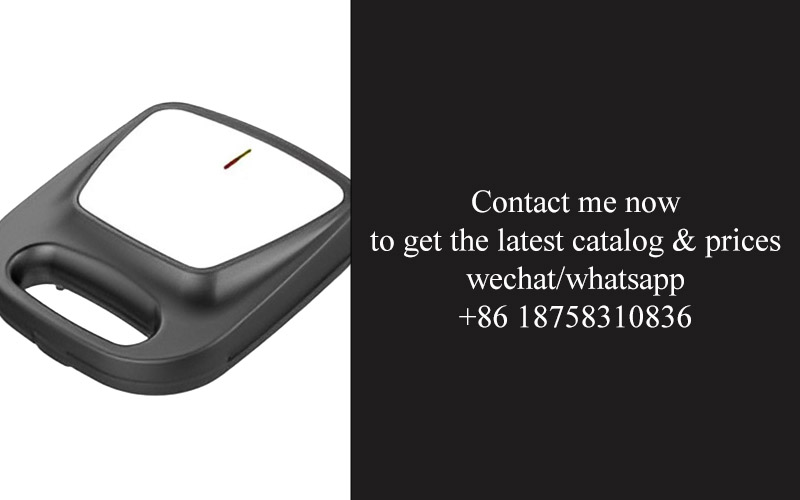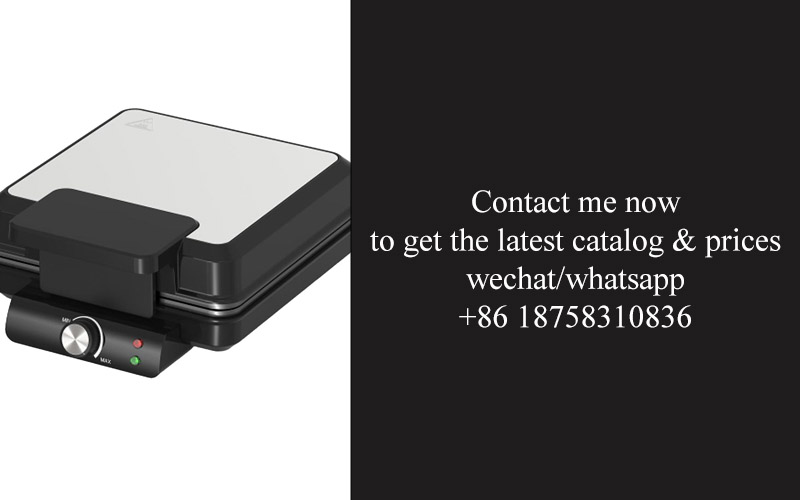Address
304 North Cardinal
St. Dorchester Center, MA 02124
Work Hours
Monday to Friday: 7AM - 7PM
Weekend: 10AM - 5PM
Address
304 North Cardinal
St. Dorchester Center, MA 02124
Work Hours
Monday to Friday: 7AM - 7PM
Weekend: 10AM - 5PM

In a world where the kitchen has evolved beyond mere meal preparation, the appliances that call this space home have also transformed. The convergence of technology and convenience has paved the way for innovative designs that not only enhance our daily lives but also reflect our changing preferences and values. This exploration delves into the cutting-edge world of kitchen appliances, focusing on the pivotal role of DDP Hamburg and the dynamic contributions of Original Equipment Manufacturers (OEM) suppliers in shaping the future of this dynamic sector.
The evolution of kitchen appliances mirrors the transformative journey of technology and design, reflecting the changing dynamics of modern living. From the primitive stoves and grills of ancient times to the sleek, smart kitchen gadgets of today, the progression has been marked by innovation, efficiency, and convenience.
Early kitchen appliances were simple tools designed to reduce the labor-intensive nature of cooking. The invention of the first cast iron stove in the 18th century was a game-changer, allowing for more controlled cooking temperatures and the ability to simmer and bake simultaneously. The introduction of the kitchen range in the 19th century further streamlined the cooking process, with its multiple burners and oven capabilities.
As the 20th century rolled in, the kitchen became a hub of technological advancements. The advent of the electric refrigerator in the 1920s brought with it the ability to preserve food for longer periods, revolutionizing food storage and the way families managed their meals. The microwave oven, introduced in the 1950s, further minimized cooking time and opened up a world of quick, convenient meals.
The 1960s and 1970s saw the rise of countertop appliances like toasters, blenders, and food processors, which not only made cooking easier but also more enjoyable. These devices were not just tools but also became symbols of modernity and prosperity.
Enter the digital age, and the kitchen appliance landscape transformed once again. The integration of microprocessors and sensors led to the development of smart appliances that could be controlled remotely, providing homeowners with unprecedented convenience and efficiency. From the programmable coffee makers to the self-cleaning ovens, these devices were designed to anticipate and fulfill the needs of the consumer.
The 21st century has been marked by a surge in innovation, with appliances becoming more interconnected and energy-efficient. Energy-saving technologies like induction cooktops and LED lighting have become standard, reducing utility bills and environmental impact. At the same time, appliances have become more user-friendly, with intuitive interfaces and voice command capabilities.
Today, kitchen appliances are not just tools for cooking; they are extensions of our lifestyle. The demand for multi-functional appliances that combine cooking, cleaning, and even entertaining is on the rise. For instance, kitchen appliances that can be controlled through smartphones or smart home systems allow for greater flexibility and integration with other smart devices in the home.
The evolution of kitchen appliances has also been influenced by cultural shifts and global trends. For example, the growing popularity of healthy eating has spurred the development of appliances that promote healthier cooking methods, such as steam ovens and air fryers. Similarly, the rise of home cooking shows and social media influencers has highlighted the importance of kitchen aesthetics, leading to the design of appliances that are as stylish as they are functional.
In summary, the evolution of kitchen appliances has been a testament to human ingenuity and the ever-changing needs of society. From the earliest rudimentary tools to the sophisticated smart devices of today, the kitchen has become a place where technology, design, and culinary art converge, making cooking an experience that is both enjoyable and efficient.

DDP Hamburg has emerged as a trailblazer in the kitchen appliance industry, known for its relentless pursuit of innovation and cutting-edge technology. The company’s journey reflects the rapid evolution of the sector, from traditional cooking tools to smart, interconnected devices that have transformed the way we interact with our kitchens.
Their commitment to sustainability is evident in the design and production of their appliances. By incorporating eco-friendly materials and energy-efficient technologies, DDP Hamburg is not just creating products but crafting solutions that align with global environmental goals. This approach has earned them a reputation for being at the forefront of green innovation within the industry.
The brand’s design philosophy is centered around simplicity and functionality. DDP Hamburg’s appliances are sleek, modern, and intuitive to use, appealing to both the tech-savvy consumer and the traditionalist. The company’s designers understand that the kitchen is not just a place for cooking but also a hub for social interaction, and their products are designed to enhance both the aesthetics and the experience of this space.
One of the standout features of DDP Hamburg’s offerings is their integration of smart technology. From smart ovens that can be controlled via a smartphone app to refrigerators that can monitor food freshness and suggest recipes, the company is leading the charge in creating kitchen appliances that are as connected as they are practical. This level of connectivity not only streamlines everyday tasks but also adds a layer of convenience that is hard to match.
Quality is non-negotiable at DDP Hamburg. The company’s manufacturing process is meticulously controlled, ensuring that each appliance meets the highest standards of performance and durability. This dedication to excellence is reflected in the long-lasting nature of their products, which have become a staple in professional kitchens and high-end residential settings alike.
Innovation isn’t just about creating new products; it’s also about redefining existing ones. DDP Hamburg has taken classic kitchen appliances like toasters and blenders and revolutionized them with advanced features and sleek designs. This reimagining of everyday items has allowed the brand to capture a broad market, from the young, tech-obsessed consumer to the mature, value-driven buyer.
The company’s R&D department is a hub of creativity and expertise. It is here that new ideas are born and tested, ensuring that DDP Hamburg’s products are not just trendy but also future-proof. The team collaborates with industry leaders and thought leaders to stay ahead of the curve, often drawing inspiration from other sectors to apply innovative solutions to kitchen appliances.
Collaboration with OEM suppliers is a cornerstone of DDP Hamburg’s success. By partnering with trusted manufacturers, the company can focus on its core competencies while leveraging the expertise of its suppliers to produce high-quality components. This symbiotic relationship allows DDP Hamburg to offer a wide range of products without compromising on quality or innovation.
The brand’s global presence is a testament to its appeal across different markets. Whether in Europe, Asia, or the Americas, DDP Hamburg’s appliances are recognized for their superior craftsmanship and cutting-edge technology. This international acclaim has solidified their position as a leader in the kitchen appliance industry.
Customer feedback is invaluable to DDP Hamburg, and the company actively seeks out ways to improve its products based on user experiences. By listening to their customers and adapting to their needs, DDP Hamburg continues to evolve and meet the ever-changing demands of the market.
In the competitive landscape of the kitchen appliance industry, DDP Hamburg stands out as a beacon of innovation. Their unwavering commitment to quality, design, and sustainability has not only set a new standard for the industry but has also inspired a new wave of consumers to embrace technology in their homes. As the market continues to evolve, DDP Hamburg remains at the forefront, shaping the future of kitchen appliances with every new product they introduce.

In the bustling landscape of the kitchen appliance industry, OEM (Original Equipment Manufacturer) suppliers play a pivotal role that often goes unnoticed yet is indispensable. These suppliers are the unseen architects of the products that grace our kitchens, ensuring that each brand’s vision is realized with precision and quality.
OEM suppliers are the backbone of the industry, working closely with brands to design, develop, and produce the components and finished products that consumers come to rely on. They act as the silent partners, translating design specifications into tangible goods that meet the highest standards of functionality and aesthetics.
The role of an OEM supplier in the market is multifaceted, encompassing several key areas:
Customization and AdaptabilityOEM suppliers excel in customization, allowing brands to differentiate their products in a crowded market. They take generic designs and tweak them to fit a brand’s specific needs, whether it’s incorporating unique features or ensuring compatibility with existing kitchen layouts. This adaptability is crucial for brands looking to offer tailored solutions to their customers.
Quality ControlQuality is paramount in the kitchen appliance industry, where safety and reliability are paramount concerns. OEM suppliers are responsible for maintaining stringent quality control measures throughout the manufacturing process. From sourcing the right materials to adhering to rigorous testing protocols, these suppliers ensure that every product that leaves their facilities meets the brand’s standards and, by extension, the consumer’s expectations.
Cost EfficiencyOne of the primary advantages of working with OEM suppliers is the potential for cost savings. By outsourcing production, brands can reduce overhead costs and focus on their core competencies. OEM suppliers often benefit from economies of scale, which allows them to offer competitive pricing without compromising on quality. This cost efficiency is a significant factor in the market’s competitive landscape.
Innovation and DevelopmentOEM suppliers are at the forefront of innovation, constantly pushing the boundaries of what is possible in kitchen appliances. They invest in research and development to create new technologies and improve existing ones. This drive for innovation not only benefits the brands they work with but also contributes to the broader advancement of the industry as a whole.
Supply Chain ManagementThe supply chain is a complex web of suppliers, manufacturers, and distributors, and OEM suppliers are the coordinators of this intricate network. They manage the logistics of production, ensuring that components are delivered on time and that the manufacturing process runs smoothly. This expertise in supply chain management is crucial for maintaining inventory levels and meeting production deadlines.
Environmental ResponsibilityIn an era where sustainability is a growing concern, OEM suppliers are increasingly taking on the responsibility of creating eco-friendly appliances. They source materials that are recyclable or biodegradable and implement manufacturing processes that minimize waste and energy consumption. This commitment to environmental responsibility is not only a moral imperative but also a market differentiator.
Global ReachOEM suppliers often have a global presence, allowing them to cater to a diverse range of markets. They understand the cultural nuances and regulatory requirements of different regions, ensuring that their products are not only functional but also compliant with local standards. This global reach enables brands to expand their market presence with ease.
Brand CollaborationThe relationship between OEM suppliers and brands is one of collaboration. Suppliers often act as extensions of their clients’ teams, offering insights and suggestions that can enhance product design and performance. This partnership is built on trust and a shared vision for success.
Market ResponsivenessThe market is dynamic, and OEM suppliers must be equally adaptable. They stay abreast of market trends and consumer preferences, ensuring that the products they produce remain relevant. This responsiveness allows brands to keep their offerings fresh and appealing to the ever-evolving needs of their customers.
In conclusion, OEM suppliers are the unsung heroes of the kitchen appliance industry. They are the architects of quality, the innovators of tomorrow, and the guardians of brand integrity. Without them, the market would lack the diversity and sophistication that consumers have come to expect. As the industry continues to evolve, the role of OEM suppliers will only become more critical, ensuring that the kitchen appliances of the future are as impressive as they are indispensable.

In the realm of kitchen appliances, DDP Hamburg stands out not just for its cutting-edge products but also for the innovative concepts that drive them. The company’s approach to design and functionality has set new standards in the industry, and here are some of the groundbreaking product concepts that have emerged from DDP Hamburg.
Smart Integration: DDP Hamburg has embraced the era of smart technology, seamlessly integrating their appliances with home automation systems. Their refrigerators, ovens, and dishwashers are not just kitchen tools but also part of a broader smart home ecosystem, allowing users to control and monitor their appliances remotely through their smartphones or voice assistants.
Sustainability at Heart: The company has taken a bold step towards sustainability with eco-friendly appliances. Their latest line of kitchen gadgets includes energy-efficient models that use less power and reduce water consumption. From induction cooktops that minimize heat loss to LED lighting in refrigerators, DDP Hamburg is committed to reducing the environmental footprint of kitchen appliances.
User-Centric Design: DDP Hamburg understands that the heart of any appliance lies in its user experience. Their products are designed with the end-user in mind, featuring intuitive interfaces and ergonomic layouts. The sleek, minimalist designs are not just aesthetically pleasing but also practical, with hidden controls and touch-to-open mechanisms that enhance the overall cooking experience.
Advanced Cooking Technologies: The kitchen appliances from DDP Hamburg incorporate advanced cooking technologies that cater to the needs of both the professional chef and the home cook. Features like multi-zone ovens, which allow for different cooking temperatures in separate compartments, and precise temperature control on induction cooktops, ensure that every dish is cooked to perfection.
Health and Hygiene: With a growing awareness of health and hygiene, DDP Hamburg has introduced a range of appliances that prioritize food safety. Their dishwashers use innovative cleaning cycles that eliminate bacteria and allergens, while their refrigerators come with anti-bacterial coatings and air purifiers to maintain a clean and fresh environment for stored food.
Customization and Flexibility: Recognizing that every kitchen is unique, DDP Hamburg offers customizable kitchen appliances. Users can choose from various sizes, finishes, and configurations to match their kitchen decor and layout. This flexibility extends to the modular design of some appliances, allowing for easy upgrades and modifications in the future.
Connectivity and Data Analytics: DDP Hamburg’s appliances are equipped with connectivity features that allow them to collect and analyze data. This data-driven approach helps users optimize their cooking habits, providing insights into energy usage and suggesting improvements for efficiency and cost savings.
Safety Features: Safety is a top priority at DDP Hamburg, and their appliances are packed with features that protect users and their families. From child locks on ovens to automatic shut-off systems in case of overheating, the company ensures that every product is as safe as it is innovative.
Sustainability Through Durability: Recognizing that sustainability extends beyond energy efficiency, DDP Hamburg focuses on the durability of their appliances. By using high-quality materials and robust construction, the company aims to reduce the need for frequent replacements, thus minimizing waste and environmental impact.
Community Engagement: DDP Hamburg goes beyond product development by engaging with the community. The company collaborates with chefs, nutritionists, and kitchen designers to understand emerging trends and consumer needs. This collaborative approach ensures that their product concepts are not just innovative but also relevant and valuable to their customers.
The innovative product concepts from DDP Hamburg reflect a deep understanding of the evolving kitchen landscape. By focusing on smart integration, sustainability, user experience, and cutting-edge technology, the company continues to push the boundaries of what is possible in kitchen appliances.

In today’s fast-paced world, kitchen appliances have evolved far beyond the simple functions they once served. The market is now brimming with innovative technologies and trends that are reshaping the way we interact with our kitchen spaces. Let’s delve into the current market trends and data analysis to uncover what’s hot in the kitchen appliance industry.
Smart Integration and ConnectivityThe integration of smart technology has become a cornerstone in the kitchen appliance market. From refrigerators that can be controlled via smartphone apps to dishwashers that optimize water usage, the trend towards connectivity is undeniable. Smart appliances not only make life easier but also provide valuable data that can improve energy efficiency and reduce waste.
Energy Efficiency and SustainabilityConsumers are increasingly conscious of the environmental impact of their purchases. This shift in mindset has led to a surge in energy-efficient appliances. The latest models are designed to consume less power, which not only saves money on utility bills but also contributes to a greener planet. Data from market research firms like Statista shows a steady increase in the demand for energy-efficient appliances globally.
Health and Wellness FeaturesHealth and wellness have become central themes in many consumer decisions, and the kitchen appliance industry is responding with products that cater to these needs. For example, there’s a growing interest in air fryers and slow cookers, which offer healthier cooking alternatives to deep-frying and fast cooking. Additionally, appliances that can monitor and adjust cooking temperatures to optimize nutritional retention are gaining popularity.
Artificial Intelligence and PersonalizationThe rise of artificial intelligence (AI) is transforming the kitchen appliance landscape. AI-driven appliances can learn from user habits and preferences, offering a personalized experience. For instance, smart ovens can analyze the type of dish being prepared and adjust cooking times and temperatures accordingly. This level of personalization is not only convenient but also ensures that meals are cooked to perfection.
Design and AestheticsWhile functionality is paramount, the design of kitchen appliances has also become a significant factor in consumer choice. Modern appliances are sleeker, more stylish, and often designed to complement the aesthetic of contemporary kitchen designs. The emphasis on aesthetics has led to innovative designs such as hidden controls and seamless integration into kitchen cabinets.
Cooking Performance and VersatilityThe demand for appliances that can perform a variety of tasks continues to grow. Multifunctional cooktops, for instance, can sear, sauté, and simmer, offering chefs at home a broader range of cooking techniques. Similarly, high-end ovens now come with features like convection, steam, and even 3D cooking capabilities, which expand the culinary possibilities in a single appliance.
Safety and Child LocksSafety features are a top priority in the kitchen appliance industry. Advances in technology have led to the inclusion of features like child locks on ovens and microwaves, as well as automatic shut-offs and temperature controls that prevent overheating. Data from consumer safety organizations highlight the importance of these features in reducing accidents and burns in the kitchen.
E-commerce and Online SalesThe rise of e-commerce has changed how consumers purchase kitchen appliances. Online sales platforms have made it easier for consumers to compare prices, read reviews, and make informed decisions. Market analysis from companies like eMarketer indicates that online sales of kitchen appliances are on the rise, with more consumers turning to the internet for their purchases.
Brand Loyalty and CertificationConsumers are becoming more loyal to brands that they trust, especially when it comes to kitchen appliances. Brands that invest in quality, reliability, and customer service are seeing increased market share. Certification programs, such as Energy Star, also play a crucial role in influencing consumer choices, as they provide a recognizable mark of quality and efficiency.
The kitchen appliance industry is a dynamic sector that is constantly evolving. By staying attuned to these market trends and data, manufacturers and consumers can ensure that the latest innovations are embraced, leading to a more efficient, sustainable, and enjoyable cooking experience.

In the realm of kitchen appliances, collaboration between DDP Hamburg and OEM (Original Equipment Manufacturer) partners has led to a series of success stories that highlight the innovative potential of this partnership. From sleek kitchen systems to eco-friendly appliances, these case studies showcase the impact of DDP Hamburg’s vision and the market’s response to their cutting-edge concepts.
In one instance, a partnership with a renowned OEM resulted in the development of an integrated smart kitchen suite. The suite included a voice-controlled refrigerator, a multifunctional cooking island, and a high-tech oven that could be remotely monitored via a smartphone app. The project was a hit, not only for its seamless integration but also for its ability to provide homeowners with a personalized and efficient cooking experience.
Another successful collaboration involved the creation of a line of energy-efficient appliances designed for eco-conscious consumers. DDP Hamburg’s innovative approach to cooling technology allowed for a refrigerator that consumed significantly less power than its competitors. The partnership leveraged the OEM’s expertise in manufacturing to produce a product that was not only sustainable but also stylish and user-friendly.
A notable case study is the development of a compact kitchen appliance that catered to the needs of urban dwellers with limited space. The team at DDP Hamburg, in conjunction with their OEM partners, crafted a countertop oven that was not only space-saving but also versatile, capable of baking, roasting, and grilling. The appliance received glowing reviews for its performance and design, becoming a must-have for small kitchens and apartments.
The integration of smart technology into kitchen appliances has been another fruitful collaboration between DDP Hamburg and their OEM partners. A smart kitchen range that featured an AI-powered cooking assistant was introduced to the market. This assistant could analyze recipes, suggest ingredient substitutions, and even provide cooking tips based on the user’s previous preferences. The range was a hit, especially among tech-savvy consumers who appreciated the fusion of modern technology with culinary expertise.
One of the most ambitious projects involved the design of a modular kitchen system that could be customized to fit any space and style. DDP Hamburg’s creative team worked closely with their OEM partners to develop a system that was both scalable and adaptable. The modular design allowed for endless combinations, ensuring that each kitchen was as unique as its owner. This project not only won awards for innovation but also set a new standard for kitchen design.
In the realm of sustainability, DDP Hamburg and their OEM partners collaborated on a line of appliances that were designed with the environment in mind. These included solar-powered dishwashers, LED lighting solutions, and appliances made from recycled materials. The eco-friendly line was met with enthusiasm, as consumers became increasingly aware of the importance of reducing their carbon footprint.
The success of these case studies can be attributed to several key factors. DDP Hamburg’s ability to conceptualize products that address current market needs while also anticipating future trends has been pivotal. Their collaborative approach with OEM partners has allowed for the seamless translation of these concepts into reality, ensuring that the final products are both innovative and practical.
Additionally, the partnerships have been marked by a strong focus on quality and customer satisfaction. Each product developed has been rigorously tested to meet the highest standards, and customer feedback has been integral to the refinement process. This commitment to excellence has not only solidified DDP Hamburg’s reputation but has also positioned them as a leader in the kitchen appliance industry.
In summary, the case studies with DDP Hamburg and their OEM partners demonstrate a clear trajectory of success. From smart technology to eco-conscious design, these collaborations have pushed the boundaries of what is possible in the kitchen appliance market. As the industry continues to evolve, the synergy between DDP Hamburg’s vision and the expertise of their OEM partners is poised to lead the way in shaping the future of home appliances.

In the ever-evolving landscape of kitchen appliances, DDP Hamburg has emerged as a pioneer, reshaping consumer preferences with its innovative approach. The brand’s commitment to quality, design, and cutting-edge technology has not only influenced how products are perceived but also how consumers interact with their kitchen spaces. Here’s a closer look at the impact DDP Hamburg has on shaping consumer preferences:
The integration of smart technology has become a cornerstone in modern kitchen appliances, and DDP Hamburg has been at the forefront of this trend. Their appliances are not just tools for cooking; they are intelligent companions that adapt to the user’s needs. Consumers are increasingly drawn to the convenience and efficiency that smart features offer, from voice-activated controls to predictive maintenance, reflecting a shift towards a more connected and user-friendly kitchen environment.
DDP Hamburg’s focus on sustainability has resonated with eco-conscious consumers. The brand’s commitment to using renewable materials and energy-efficient designs has prompted a growing segment of the market to prioritize environmental responsibility. Appliances that are energy-saving and durable not only reduce the carbon footprint but also align with the values of a sustainable lifestyle, influencing consumer choices in a significant way.
The aesthetic appeal of kitchen appliances has also been transformed by DDP Hamburg. No longer are kitchen gadgets seen as mere functional items; they are now considered statement pieces that can elevate the look of a kitchen. The sleek designs, high-quality finishes, and thoughtful integration into kitchen decor have made DDP Hamburg products not just practical but also beautiful. This has led to a preference among consumers for appliances that not only perform well but also complement their home’s style.
In the realm of health and wellness, DDP Hamburg has introduced a range of kitchen appliances designed to cater to the growing demand for clean eating and healthy cooking. From air fryers that eliminate the need for excessive oil to induction cooktops that offer precise temperature control, the brand has addressed the concerns of health-conscious consumers. This focus on health has become a pivotal factor in consumer preferences, with many choosing appliances that support their lifestyle choices.
The brand’s dedication to user experience is another area where DDP Hamburg has made a mark. By incorporating intuitive interfaces and easy-to-use controls, they have ensured that their appliances are accessible to all users, regardless of their technical expertise. This user-centric approach has not only made DDP Hamburg products stand out but has also encouraged consumers to seek out appliances that are designed with the end-user in mind.
Customization is another trend that DDP Hamburg has embraced, allowing consumers to personalize their kitchen appliances. With options for colors, finishes, and even specialized features, customers can tailor their appliances to match their individual tastes and needs. This level of personalization has become a significant factor in consumer preference, as people look for products that reflect their unique identity.
In the world of kitchen appliances, safety has always been a top priority, and DDP Hamburg has taken this to new heights. With appliances equipped with advanced safety features like child locks, automatic shut-offs, and spill-proof designs, the brand has instilled confidence in its customers. The emphasis on safety has become a crucial factor in consumer decisions, as people seek appliances that offer peace of mind.
Finally, DDP Hamburg’s approach to innovation has influenced the way consumers view the future of kitchen technology. The brand’s willingness to invest in research and development, to explore new materials, and to push the boundaries of what’s possible has set a new standard in the industry. Consumers are now more open to experimenting with new technologies and embracing the future of kitchen appliances, thanks in part to the vision set by DDP Hamburg.
In essence, DDP Hamburg’s impact on consumer preferences is multifaceted. From smart technology and sustainability to aesthetics, health, user experience, customization, safety, and innovation, the brand has touched on nearly every aspect of consumer desires in the kitchen appliance market. As a result, DDP Hamburg has not only become a leading player in the industry but has also inspired a new wave of consumer expectations and values.

In the ever-evolving landscape of kitchen appliances, the future holds a myriad of predictions and possibilities that promise to revolutionize the way we interact with our culinary spaces. From smart integration to sustainable design, here are some of the key trends and innovations that are shaping the future of kitchen appliances:
The rise of smart kitchen technology is undeniable. As homes become more connected, appliances are following suit, offering a level of convenience and efficiency that was once unimaginable. Imagine a fridge that not only keeps your food fresh but also suggests recipes based on its contents or a stove that adjusts its heat settings to the type of dish you’re preparing. These smart features are not just about convenience; they’re about creating a seamless cooking experience that adapts to the user’s needs.
Energy efficiency is another critical area of focus. With increasing environmental concerns, manufacturers are under pressure to produce appliances that consume less energy without compromising performance. This shift is evident in the development of induction cooktops, which use up to 90% less energy than traditional electric ranges, and LED lighting in appliances that provide brighter illumination while using significantly less power.
The integration of appliances with voice assistants and mobile apps is becoming more sophisticated. Users can now control their kitchen appliances with simple voice commands or through their smartphones, making cooking and kitchen management more accessible to those with physical limitations or busy lifestyles. This level of connectivity also allows for real-time monitoring and remote control, ensuring that appliances can be adjusted even when the user is away from home.
Sustainability is at the forefront of the kitchen appliance industry. There’s a growing demand for appliances that are not only energy-efficient but also made from sustainable materials. This includes the use of recycled plastics, biodegradable components, and appliances designed for easy disassembly and recycling at the end of their life cycle. The focus on sustainability isn’t just about reducing environmental impact; it’s also about creating a sense of responsibility among consumers.
The customization of kitchen appliances is another trend that’s gaining traction. With the ability to personalize settings and features, appliances are becoming more adaptable to individual preferences. For example, refrigerators with customizable storage solutions and dishwashers that can be programmed for different types of dishes are becoming more common. This level of customization not only enhances the user experience but also increases the longevity of the appliance by ensuring it’s well-suited to the user’s specific needs.
In the realm of health and wellness, kitchen appliances are becoming more focused on providing tools that support a balanced diet. This includes appliances that can help in meal prep, such as sous-vide machines for precise cooking temperatures and air fryers that offer a healthier alternative to deep-frying. The rise of these health-conscious appliances reflects a broader cultural shift towards mindful eating and living.
The future of kitchen appliances also hinges on the integration of AI and machine learning. Appliances that can learn from user habits and adapt accordingly are not far off. Imagine a coffee maker that knows when you’re about to wake up and starts brewing your coffee, or an oven that adjusts its settings based on the recipe you’re using. The potential for AI to make cooking more intuitive and efficient is vast.
Innovation in materials is also a driving force. Advances in materials science are leading to the development of appliances that are not only more durable but also more visually appealing. For instance, the use of high-tech glass for cooktops and countertops that offer a sleek, modern look while being resistant to scratches and heat.
The rise of modular kitchen appliances is another interesting development. These are appliances that can be easily swapped out or upgraded as technology advances, allowing homeowners to keep their kitchen equipped with the latest innovations without a complete overhaul. This concept of modularity also extends to the way appliances are designed, with a focus on ease of installation and compatibility with various kitchen layouts.
Lastly, the concept of the “smart kitchen” is expanding beyond just appliances. It’s becoming an ecosystem where all kitchen devices work together to create a cohesive and efficient cooking environment. This includes everything from lighting and ventilation systems to water filtration and waste management. The goal is to create a kitchen that not only enhances the cooking experience but also contributes to a healthier, more sustainable lifestyle.
In conclusion, the future of kitchen appliances is a blend of technology, sustainability, and personalization. As consumers demand more from their kitchen tools, manufacturers are responding with innovative solutions that promise to make cooking not just easier, but also more enjoyable and fulfilling. The possibilities are as limitless as the culinary creations that these appliances will help bring to life.

In the ever-evolving landscape of kitchen technology, the partnership between DDP Hamburg and OEM suppliers has become a cornerstone in shaping the future of culinary appliances. The impact of this collaboration on consumer preferences is profound, reflecting a shift towards smart, efficient, and user-friendly designs. Here’s a closer look at how DDP Hamburg’s approach has influenced consumer tastes and what it means for the industry.
Consumers today are more health-conscious than ever before. The rise of the “clean eating” movement has spurred a demand for kitchen appliances that not only simplify meal preparation but also promote healthier cooking methods. DDP Hamburg’s commitment to innovation has resulted in appliances that cater to this trend, such as induction cooktops that reduce energy consumption and air fryers that offer a healthier alternative to traditional frying.
The modern kitchen is no longer just a place for cooking; it’s a hub for socializing and entertainment. DDP Hamburg’s appliances are designed with this in mind, featuring sleek designs that complement contemporary interiors. Smart ovens and refrigerators with built-in screens and connectivity to streaming services have become must-have items for consumers looking to create a seamless kitchen experience.
Customization is another area where DDP Hamburg has made a significant impact. With the ability to offer personalized appliance solutions through their OEM partnerships, the company has enabled consumers to tailor their kitchen technology to their specific needs. From modular cooktops that can be reconfigured to meet changing preferences to refrigerators with customizable storage solutions, the market is responding positively to these innovative approaches.
Energy efficiency has become a cornerstone of consumer choice when it comes to kitchen appliances. DDP Hamburg has been at the forefront of this movement, producing appliances that are not only energy-saving but also eco-friendly. The company’s focus on sustainability is reflected in their product line, which includes appliances that use less energy and contribute to a reduced carbon footprint.
The integration of technology into kitchen appliances has been a game-changer. DDP Hamburg’s appliances are not just tools for cooking; they are smart devices that can be controlled remotely, learn from usage patterns, and offer personalized cooking recommendations. This level of connectivity has not only made kitchen appliances more convenient but has also empowered consumers to take control of their health and culinary experiences.
The rise of the digital kitchen has also influenced consumer preferences. DDP Hamburg has embraced this trend by offering appliances that can be integrated into a smart home ecosystem. This means that kitchen appliances can be controlled through voice commands, smartphone apps, or even gestures, providing a seamless and intuitive user experience.
The impact of DDP Hamburg’s approach on consumer preferences is also evident in the way the company has addressed the needs of different demographics. For instance, their line of appliances for seniors is designed with accessibility in mind, featuring larger buttons, voice control, and intuitive interfaces. This focus on inclusivity has resonated with a broad range of consumers, making DDP Hamburg’s products more appealing and user-friendly.
In terms of market trends, the rise of the “Internet of Things” (IoT) has opened up new possibilities for kitchen appliances. DDP Hamburg has been quick to capitalize on this trend, producing appliances that can communicate with each other and with the consumer, creating a more efficient and responsive kitchen environment.
The company’s commitment to innovation and customer satisfaction has not gone unnoticed. Testimonials and case studies from satisfied customers highlight the positive impact of DDP Hamburg’s products on their daily lives. From the convenience of having a coffee machine that knows when you’re up to the joy of a refrigerator that suggests recipes based on the contents, consumers are reaping the benefits of DDP Hamburg’s forward-thinking approach.
In conclusion, the partnership between DDP Hamburg and OEM suppliers has significantly influenced consumer preferences in the kitchen appliance market. By focusing on health, connectivity, customization, energy efficiency, and inclusivity, DDP Hamburg has set a new standard for what modern kitchen appliances can offer. As the industry continues to evolve, it’s clear that DDP Hamburg and its OEM partners are well-positioned to lead the way into the new era of kitchen technology.